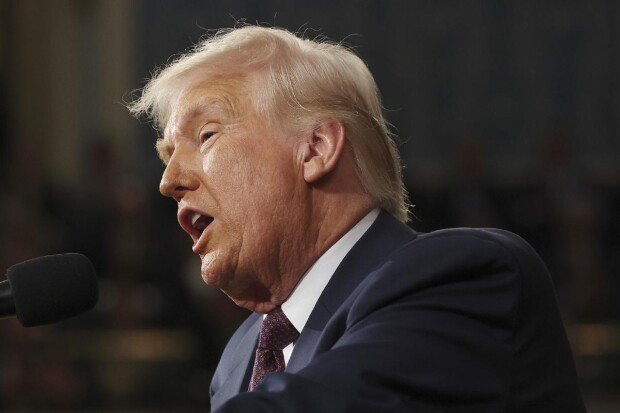Trump’s relentless tariff push, Seoul left without a say at the table
Trump’s relentless tariff push, Seoul left without a say at the table
Posted March. 07, 2025 07:40,
Updated March. 07, 2025 07:40

President Donald Trump has warned that South Korea’s average tariff rate is four times higher than that of the United States, signaling potential tariff hikes and intensifying pressure on Seoul over defense cost-sharing and U.S. troop deployments. With only 26 days left until Trump’s self-imposed deadline for reciprocal tariffs on April 2, concerns are mounting that South Korea, amid prolonged domestic political turmoil, may struggle to shield itself from the headwinds of “Typhoon Trump”.
Shin Won-sik, South Korea’s national security adviser, announced Wednesday that he would meet with U.S. National Security Advisor Michael Waltz during a visit to Washington. This marks the third high-level ministerial meeting between the two countries since the Trump administration took office, following meetings between foreign and trade ministers. Speaking to reporters at Dulles International Airport, Shin mentioned Trump’s claim of South Korea’s high tariffs but noted, “In reality, there are few tariffs between our countries, so this is an area we’ll need to discuss further.” He added that South Korean trade officials are in close communication with the U.S. Commerce Department and the U.S. Trade Representative (USTR), expressing hope for a positive outcome. However, analysts suggest that resolving tariff disputes through meaningful negotiations may prove difficult amid looming tariff threats.
On that day, Trump announced a one-month delay in imposing auto tariffs on Mexico and Canada. By maintaining strategic ambiguity regarding the countries, industries, and scope of the tariffs, the administration aims to maximize its leverage. As a result, not only Canada and Mexico but also key U.S. allies in Asia, including Japan, India, and Australia, have begun discussions on potential tariff exemptions through summits and phone calls.
South Korean officials are also pursuing backchannel diplomacy to secure temporary tariff relief and delays, though progress has been limited. Last week, Industry Minister Ahn Deok-geun raised concerns about tariffs during a meeting with Commerce Secretary Howard Lutnick, but the two sides have yet to establish a working-level consultation body. Next week, Trade Minister Jung In-kyo is set to meet with USTR Acting Chief Jamieson Greer for their first round of talks.
Experts are urging the government to move swiftly and prepare solid negotiating strategies. Park Tae-ho, head of international trade at law firm Gwangjang and a former trade minister, advised against directly challenging Trump’s statements. “Instead, it’s crucial to maintain open channels through the national security and industry ministries, positioning South Korea as a cooperative and flexible negotiating partner,” Park said. “The government should also work with businesses to prepare a comprehensive package addressing both security and trade concerns, which would be the most effective strategy.”
Na-Ri Shin journari@donga.com



![[사설]계엄 때보다 낮은 지지율 17%… 국힘의 존재 이유를 묻는 민심](https://dimg.donga.com/c/138/175/90/1/wps/NEWS/IMAGE/2026/02/26/133433702.1.jpg)



